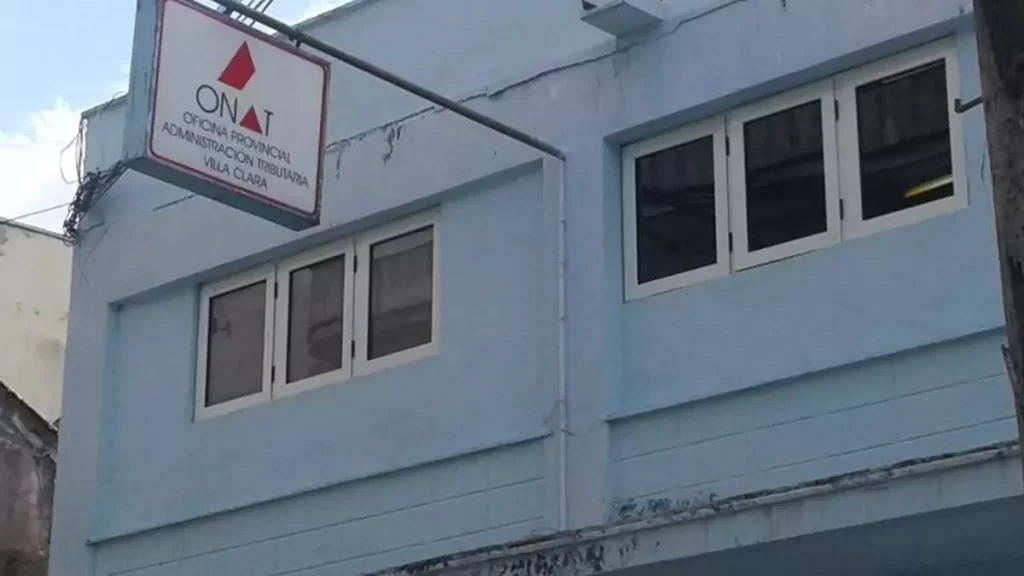
![]() 14ymedio, Madrid, 9 April 2024 — With just twenty-one days to go before the Personal Income Tax Return deadline, not even half of taxpayers in Sancti Spiritus province have filed their returns. Though 17,700 people are required to file, according to an article published on Tuesday in the provincial newspaper Escambray, only about 8,000 have done so, a situation that is becoming increasingly common across the country.
14ymedio, Madrid, 9 April 2024 — With just twenty-one days to go before the Personal Income Tax Return deadline, not even half of taxpayers in Sancti Spiritus province have filed their returns. Though 17,700 people are required to file, according to an article published on Tuesday in the provincial newspaper Escambray, only about 8,000 have done so, a situation that is becoming increasingly common across the country.
Those required to pay personal income taxes include self-employed workers, artists, social media entrepreneurs and employees of foreign-owned banks. Some workers in the agricultural sector are also required to pay income tax but the compliance rate is about same as in other fields. Of the 12,600 required file a tax return, only 45% have done so. Those failing to pay their taxes include emigrés who did not register at the National Tax Administration Office (ONAT), a very common situation among those who move overseas.
The article confirms fears that have been widespread since the early filing period ended on February 28. Anyone filing a return by that date would have seen their tax burden reduced by 5%. At that time, state media complained that only 58,936 of the total 462,445 taxpayers had filed returns, a mere 12.7% of the total. The situation was even worse in the case of agricultural workers: Of the 163,558 required to file tax returns, only 10,324 (a paltry 6.3%) did so.
State media complained that only 58,936 of the total 462,445 taxpayers had filed returns, a mere 12.7% of the total
These numbers are based on returns from seven provinces: Havana, Cienfuegos, Sancti Spíritus, Ciego de Ávila, Holguín, Santiago de Cuba and Guantánamo. In other words, half the island. As ONAT head Mary Blanca Ortega Barredo pointed out, non-compliance occurs in all sectors of the country’s workforce but the cultural sector’s numbers stand out.
According to Escambray, the deadline for state-owned companies, as well as micro, small and medium-sized enterprises (MSMEs), to pay their taxes was March 31. This year, they are also required to file a tax return. The tax exemption for newly created companies ended in January and has not been extended.
The article points out that corporations have shown the highest level of compliance. Though it does not provide figures, it states that most of these 792 companies, along with the owners of all the MSMEs, filed tax returns. Together, they account for 83% of all taxes the country collects.
There were more than 400 tax audits conducted in Sancti Spíritus in 2023, which resulted in thirty-million pesos in fines. Since then, there have been ninety such investigations, which revealed a shortfall in tax payments of approximately 8.5 million pesos that should have gone to the state.
Although the article contains informative data on current tax collection efforts, its main focus is on raising awareness among taxpayers about the importance of paying their taxes and what might happen to them if they do not. For example, if tax authorities reach an agreement with someone accused of tax evasion, there is no further legal action. This is not what happens if the issue goes to court, where there are currently ten such cases underway.
In addition to fines, tax evaders face the prospect of not being allowed to leave the country, a penalty that currently imapacts some two-hundred people who refused to comply with Cuban tax law
In addition to fines, tax evaders face the prospect of not being allowed to leave the country, a penalty proscribed by Cuba tax law that currently impacts some two-hundred people who refused to fulfill their tax obligations.
This year, it is expected that 338,999 million pesos will be collected in taxes – including fees and contributions – “all of which guarantee the support and development of social programs as important as public health, education, social assistance, sport and culture,” the article explains.
Some taxpayers have been critical of ONAT for delays in issuing refunds to which they are entitled. It is not uncommon for people to wait until December or beyond for their refunds to arrive.
Cuba’s low rate of tax compliance is nothing new. Experts point to the expansion of the informal market, a tradition of tax avoidance and widespread distrust of financial institutions as the principal causes. This is exacerbated by the lack of transparency in how public money is spent. Government budgets lack the detail necessary to determine how much is allocated to each specific spending category.
____________
COLLABORATE WITH OUR WORK: The 14ymedio team is committed to practicing serious journalism that reflects Cuba’s reality in all its depth. Thank you for joining us on this long journey. We invite you to continue supporting us by becoming a member of 14ymedio now. Together we can continue transforming journalism in Cuba.
